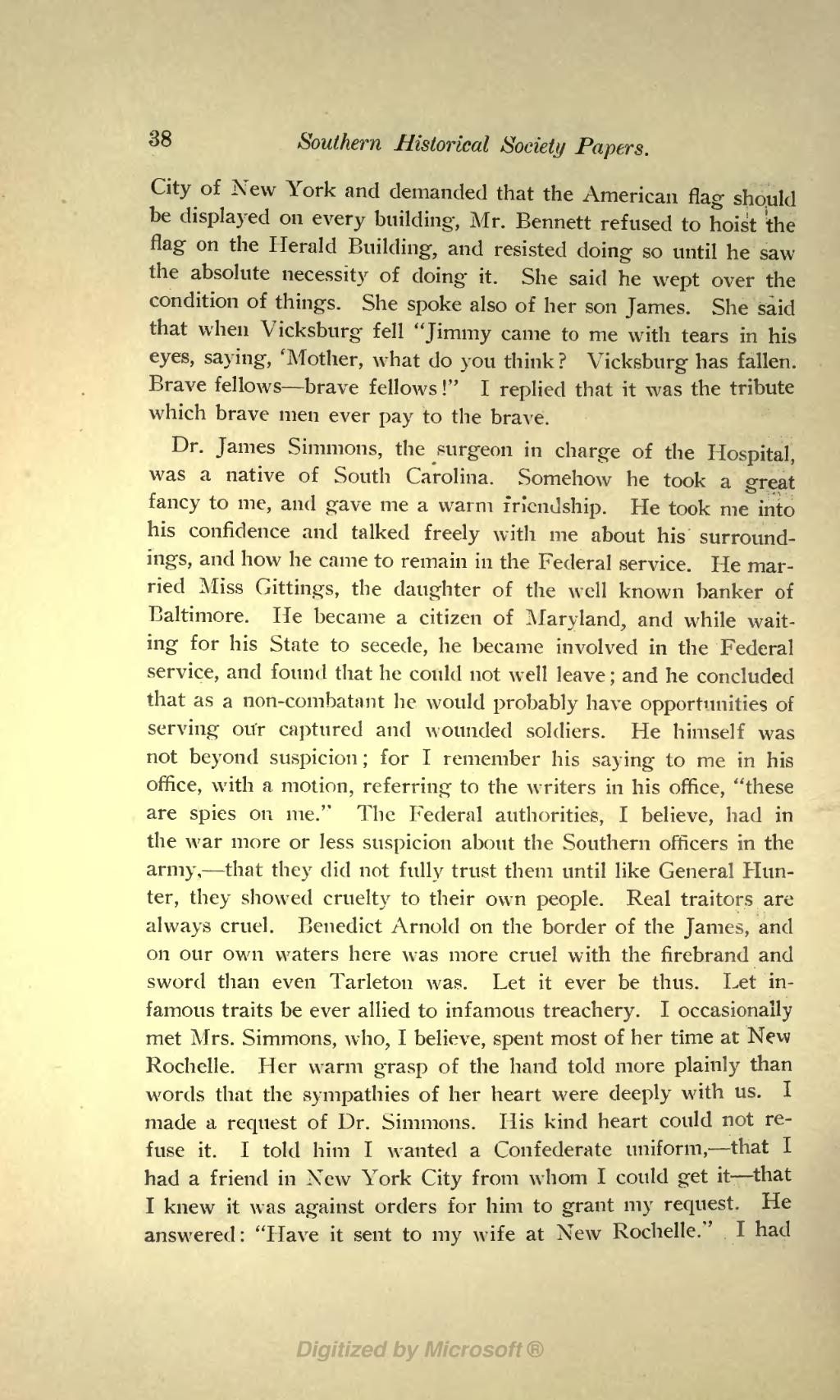38 Southern Historical Society Papers.
City of New York and demanded that the American flag sho.uld be displayed on every building, Mr. Bennett refused to hoist the flag on the Herald Building, and resisted doing so until he saw the absolute necessity of doing it. She said he wept over the condition of things. She spoke also of her son James. She said that when Vicksburg fell "Jimmy came to me with tears in his eyes, saying, 'Mother, what do you think? Vicksburg has fallen. Brave fellows brave fellows !" I replied that it was the tribute which brave men ever pay to the brave.
Dr. James Simmons, the Burgeon in charge of the Hospital, was a native of South Carolina. Somehow he took a great fancy to me, and gave me a warm friendship. He took me into his confidence and talked freely with me about his surround- ings, and how he came to remain in the Federal service. He mar- ried Miss Gittings, the daughter of the well known banker of Baltimore. He became a citizen of Maryland, and while wait- ing for his State to secede, he became involved in the Federal service, and found that he could not well leave ; and he concluded that as a non-combatant he would probably have opportunities of serving ou'r captured and wounded soldiers. He himself was not beyond suspicion; for I remember his saying to me in his office, with a motion, referring to the writers in his office, "these are spies on me." The Federal authorities, I believe, had in the war more or less suspicion about the Southern officers in the army, that they did not fully trust them until like General Hun- ter, they showed cruelty to their own people. Real traitors are always cruel. Benedict Arnold on the border of the James, and on our own waters here was more cruel with the firebrand and sword than even Tarleton was. Let it ever be thus. Let in- famous traits be ever allied to infamous treachery. I occasionally met Mrs. Simmons, who, I believe, spent most of her time at Nevv Rochelle. Her warm grasp of the hand told more plainly than words that the sympathies of her heart were deeply with us. I made a request of Dr. Simmons. His kind heart could not re- fuse it. I told him I wanted a Confederate uniform, that I had a friend in New York City from whom I could get it that I knew it was against orders for him to grant my request. He answered: "Have it sent to my wife at New Rochelle/' I had
